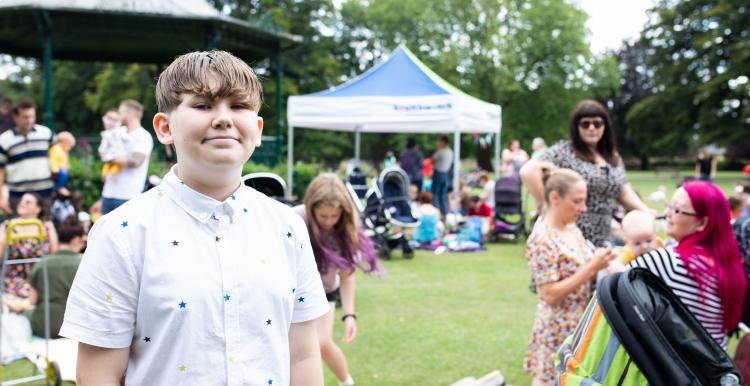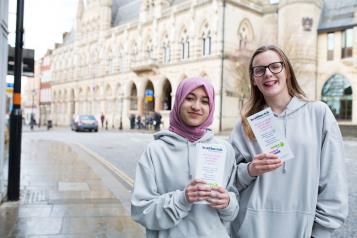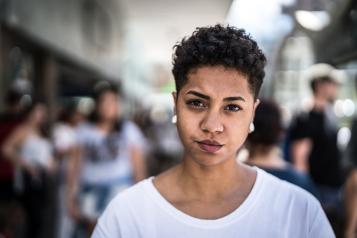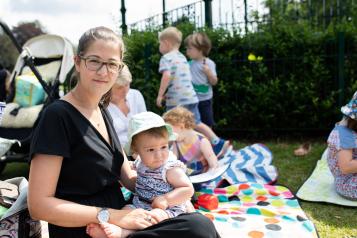Mental Health Awareness Week: Highlighting partnership working to promote the protection and resilience of young people’s mental health and well-being

In the project so far, they have been listening to the concerns of young people - offering tips and advice and sharing views in a bid to provide support as we transition towards a 'new normal' on the government’s ‘roadmap’ back to freedom.
Many youngsters have experienced unfamiliar feelings of anxiety and depression since the beginning of the COVID-19 pandemic and it is well known that these feelings can be very challenging and worsen rapidly if not understood and addressed early on. Last month, in the second of its kind, an online interactive Youth Wellbeing Conference was delivered. It was chaired by ‘Young Ambassadors’ from Northamptonshire and supported by representatives from the county’s MIND, The Lowdown, Children and Young People’s Young People’s Services (CHAMS) Connect and Public Health Northamptonshire. A local doctor was also on hand to offer advice. The ‘Young Ambassadors', endorsed and appointed by Free2Talk, were there to listen to the needs, ideas, thoughts and views of fellow youngsters. They are currently organising a third conference planned for the coming weeks.
The conferences have been a useful platform for voices to be heard about the strains of the pandemic as well as providing a way of sharing a range of possible ways to cope. The most recent one has had more than one hundred views so far and they are keen for it to be shared far and wide. Hosted by the Youth Ambassadors, it covers topics including coping mechanisms – The five ways to wellbeing, giving, learning new skills and the importance of self-care.
Also discussed were the benefits of mobile apps, such as Calm and Headspace, which are both designed to help you live better by stressing less, sleeping more, and improving your general outlook on life. Both apps help you learn the ins and outs of meditation, offer guided practices based on different themes, and feature tools designed to improve your sleep quality.
They also point to a wealth of NHS apps. They include ThinkNinja, an app that helps 10-18-year olds learn about and manage their mental health, distrACT which offers quick and discreet access to information about self-harm and suicidal thoughts, and WorryTree which helps to notice, record and manage worries using behavioural therapy techniques.
The latest conference can be viewed on YouTube and also includes a short video explaining social distancing, the lateral flow test and mask wearing.
In addition to this work, Public Health officials and Free2Talk are asking all Northamptonshire’s residents to look out for the early signs and symptoms of deteriorating mental health in friends and family, young and old, in a bid to intercept in the early stages before conditions may take hold. Ask yourself: are they sleeping more? Withdrawn? Eating more or less? Spending more time in their rooms? Less vocal? Changes in taking care of appearance and hygiene? General lethargy? Free2Talk is a community organisation supporting children and young people between the ages of 8 and 18.
James Sheppard from Free2Talk said:
"Free2Talk has been working with young people across Northamptonshire for over ten years and our ethos is about instilling young people with confidence and resilience. In that time, we have worked with thousands of people, making an impact on them and their community.
In many ways, mental health is just like physical health: everybody has it and we need to take care of it. Good mental health means being generally able to think, feel and react in the ways that you need and want to live your life. But if you go through a period of poor mental health you might find the ways you're frequently thinking, feeling or reacting become difficult, or even impossible, to cope with. This can feel just as bad as a physical illness, or even worse.
At the early stages, if our friends and family can recognise the problem, then young people have a chance of a much shorter recovery time. If left unchecked, it can often be a long road back to a healthy mind. That is why it’s so important for young people to talk and we try to offer the platform and resources for them to do so.
We all need to get better at noticing each other and being brave enough to look after each other’s’ and our own wellbeing. It’s a strength to speak out."
Lucy Wightman Joint Director of Public Health - North and West Northamptonshire Councils added:
"During this pandemic many people have been very isolated and/or anxious, and it is important to recognise that these feelings can very rapidly transform into symptoms of ill mental health. It’s so important to reach out to people and help them at these early stages and that is what we are trying to achieve. This is why this project is so hopeful.
As we emerge from lockdown, many youngsters may feel like they're the only person who has reservations about restrictions being lifted and life ‘going back to normal.’ Please be reassured that they aren’t. Change is rarely straight forward to navigate, and the familiarity of our imposed but newly established, routines have been comforting for many. They may be feeling safe and secure in their home and the prospect of meeting up with a group of people for work or pleasure may feel overwhelming. This is all normal.
Please know that local businesses and services are doing all they can to keep us all safe, but it takes time to adapt - and we will all, in time, adapt once again to this new way of life. Although the rationale behind the government’s step by step ‘roadmap’ wasn’t designed for a gradual psychological readjustment – it has allowed for this quite nicely with time in between each step to help people readjust."
Online resources endorsed by Public Health Northamptonshire where young people can find out how they can help themselves are:
Find out more about local services for young people and their mental health


